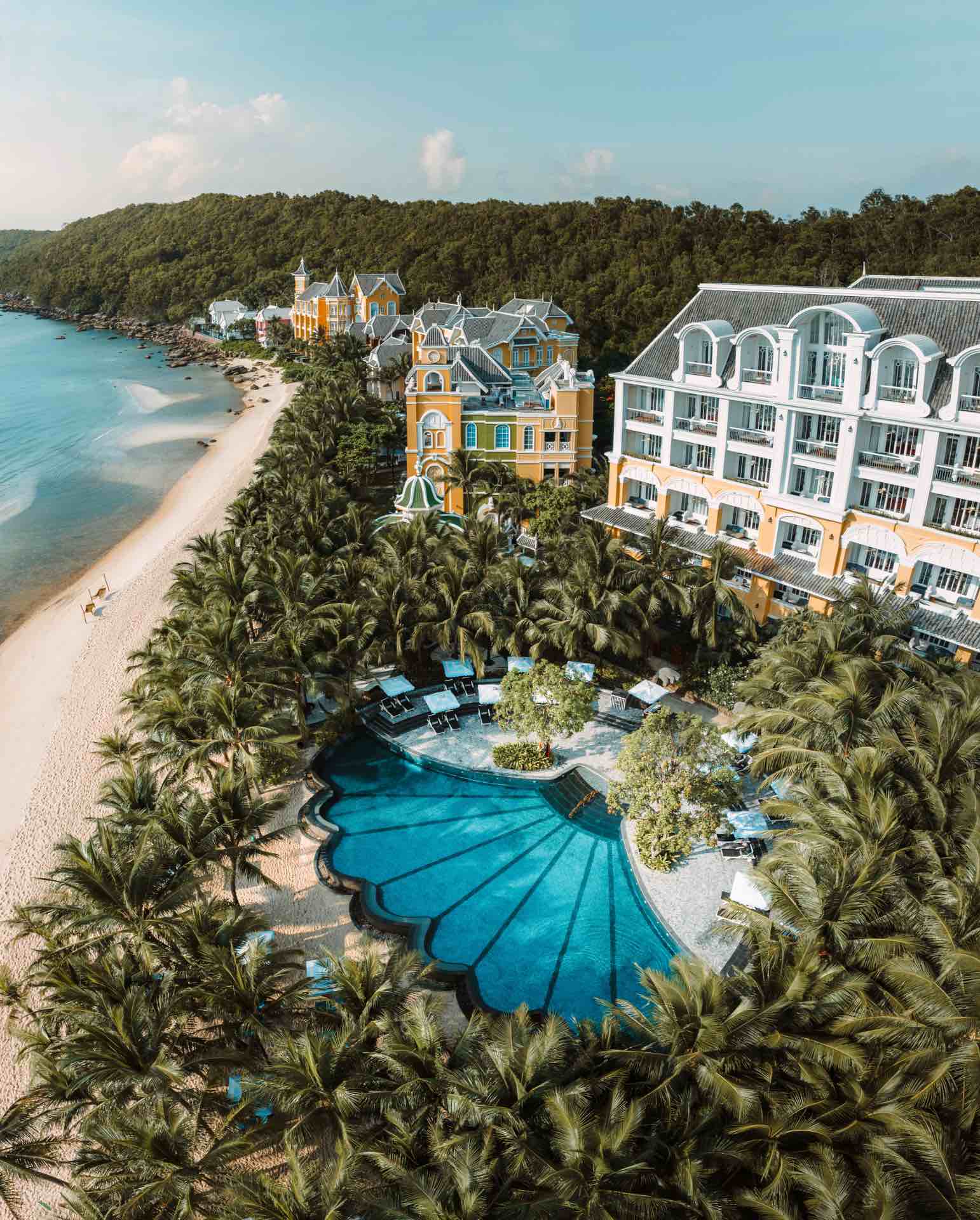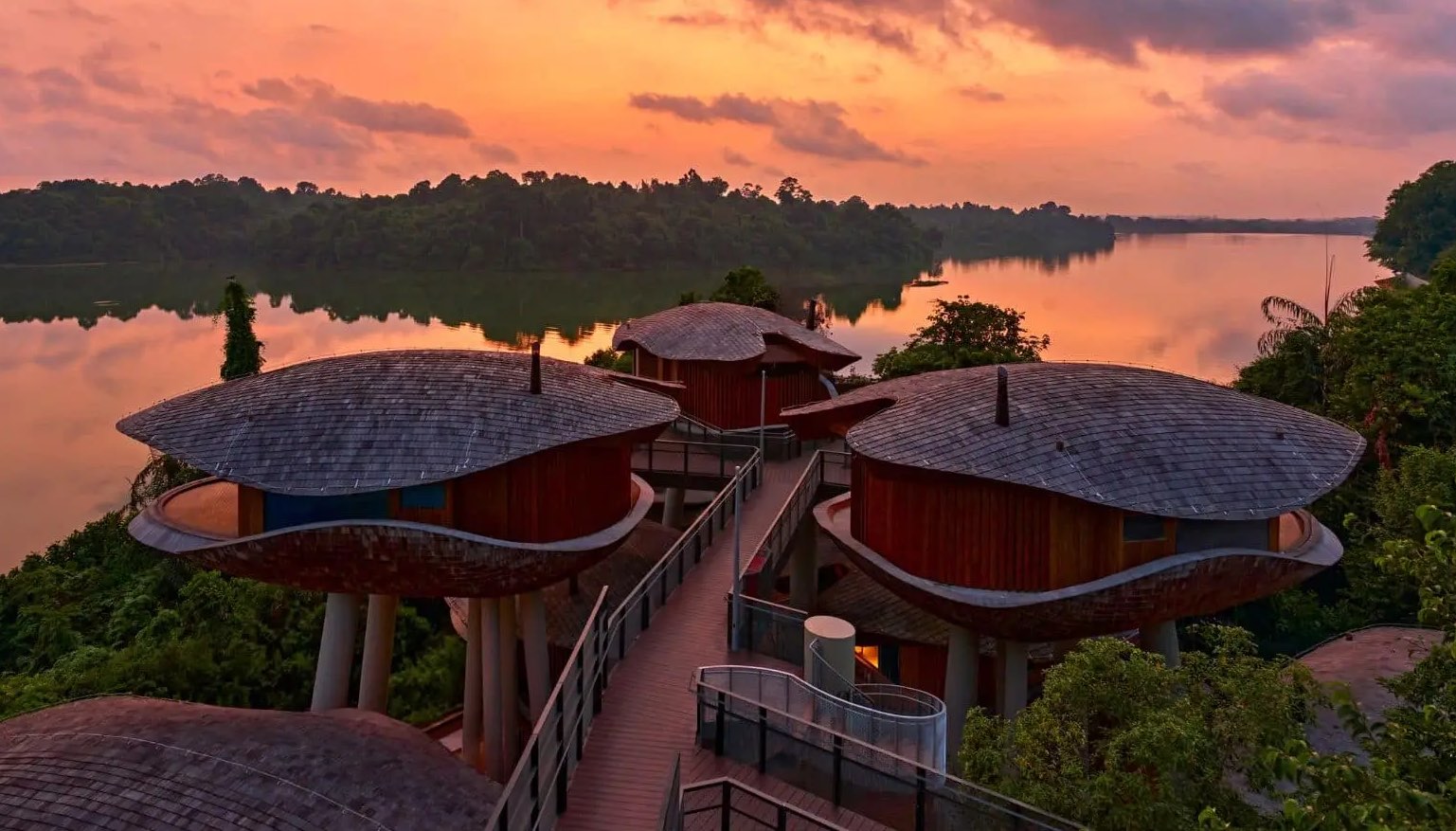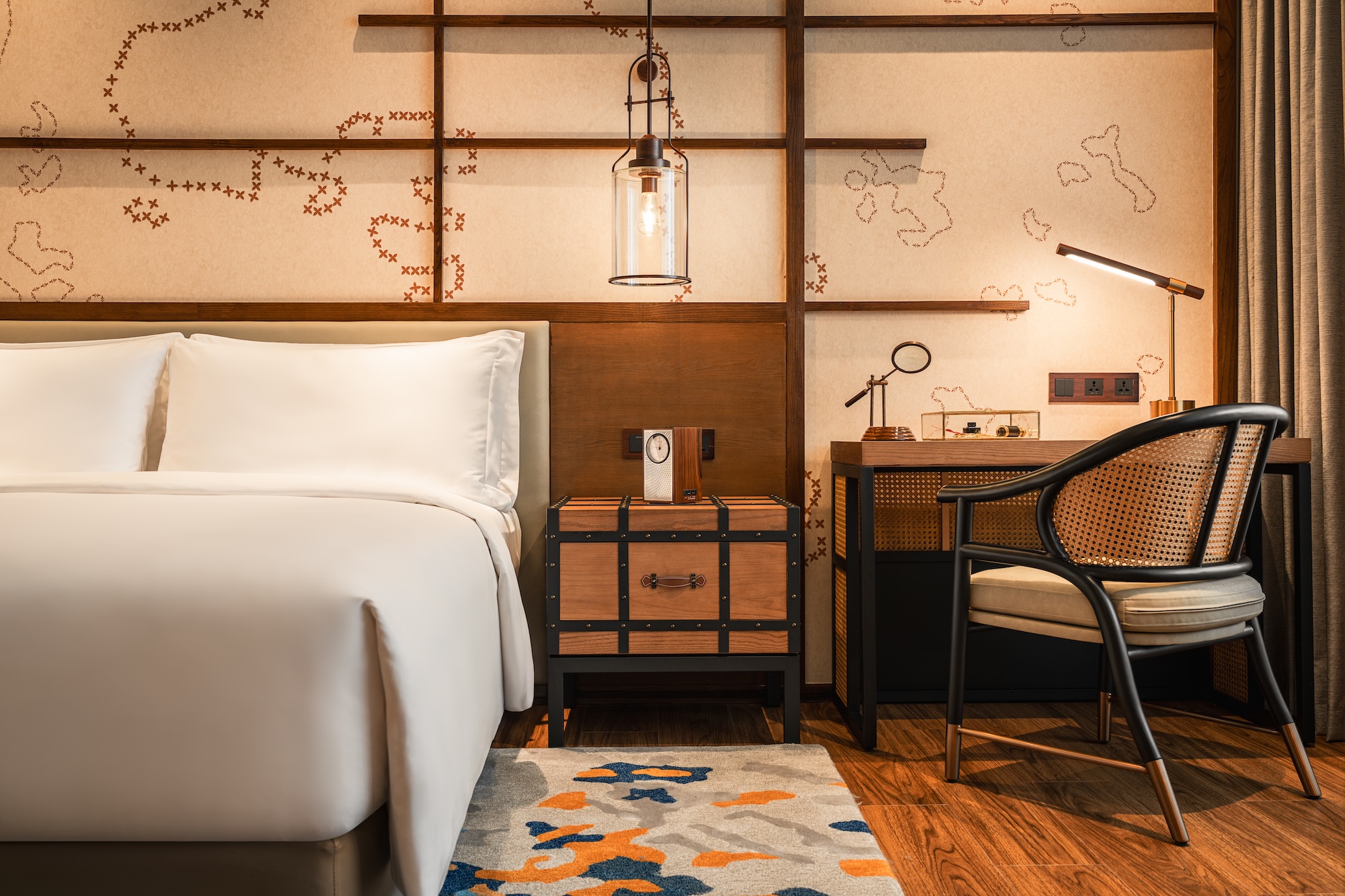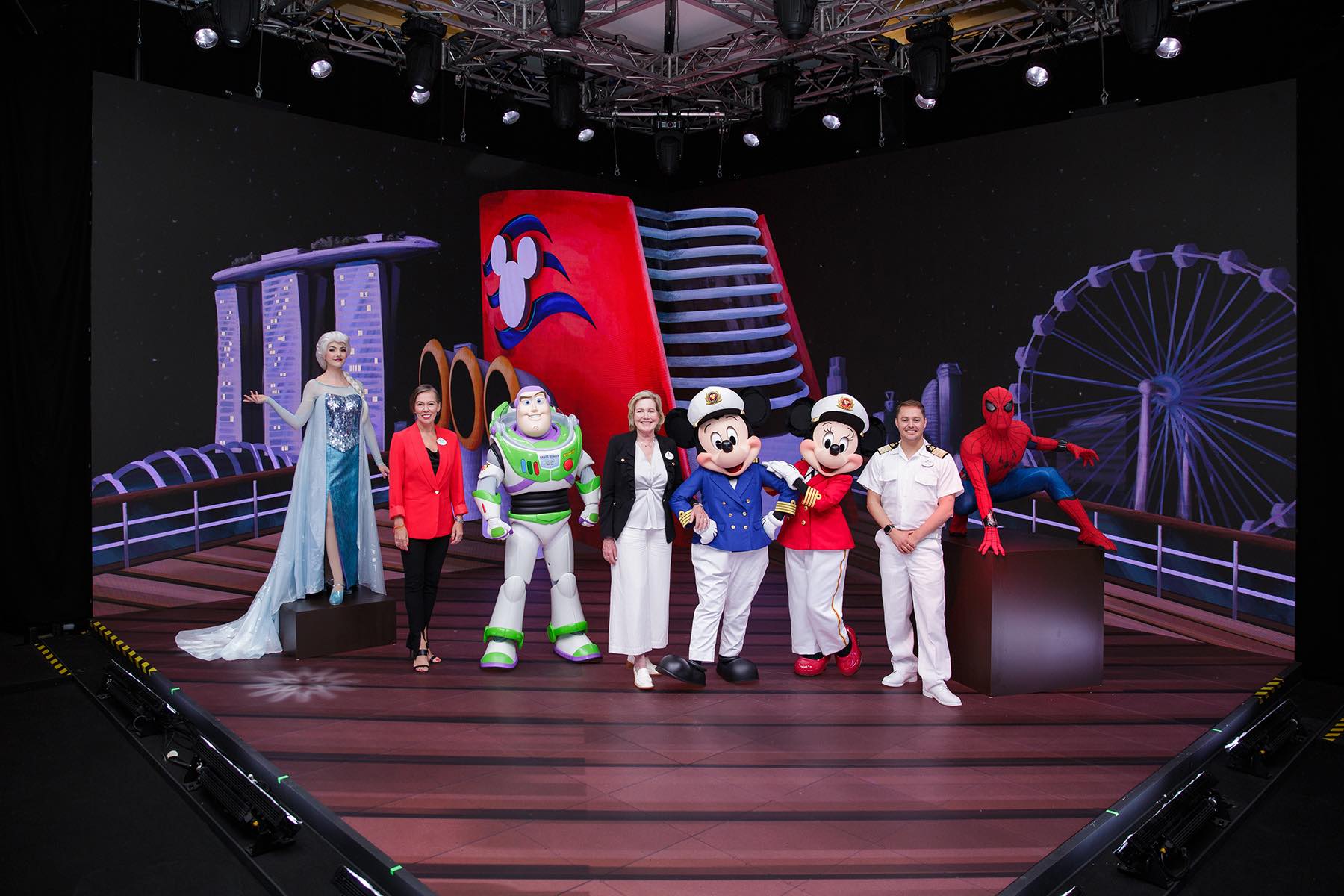This story was contributed by our reader Alythea Ho as part of SG Magazine’s travel writing contest conducted earlier this year in partnership with Park Hyatt Siem Reap.
There are only two things in life I consider worth waking up for on a cold weekday morning. One, a freshly brewed cup of coffee strong enough to wake the living dead. Two, a good book. Or at least, an unusual one.
I burrowed deeper beneath the soft warm bedcovers and began flipping through my latest acquisition from the hotel’s souvenir store: “They had heard all kinds of amazing stories. Stories of General Kim Ill Sung’s army flying through the clouds on winged steeds, or standing lined up on top of a mountain one moment and mysteriously vanishing into thin air the next…”
“Wow, this is ridiculous,” I thought to myself.
A sharp outburst rang out across the room, followed by a tsk-ing sound. My roommate was prodding a large ugly hulk of white in frustration. Clearly, Yanggakdo Hotel, one of Pyongyang’s most premium hotels, had not lived up to her breakfast expectations.
“Seriously, who are the North Koreans trying to bluff. It’s broken and there’s nothing in here and… is that a vegetable compartment? This isn’t even a hotel room fridge, sheesh!”
I tried ignoring her. Flying horses and teleportation had been such a good start so far.
“Also, we need to ring reception for help. Our bathroom’s starting to flood,” she continued.
I sighed. Maybe coffee would’ve been a better way to start, after all.
Exploring the capital
North Korea has been the source of global fascination and disdain for decades. Mysterious and unpredictable, the isolated nation is best known for its poverty, military-first approach (it has the world’s fourth largest army), and an entire personality cult built around the despotic Kim family.
It’s also the only country where you can see the results of communism’s first dynastic succession. The Kim family has ruled since 1945, and cemented their control over the populace with an intricate combination of Orwellian surveillance and propaganda.
Fanciful tales abound in schools and the state media, praising the godlike capabilities of the Kim family. Stories of how Kim Jong Il had his birth prophesied by a swallow, and heralded by double rainbows and a new star above Mount Baekdu. Or how his son Kim Jung Un, current dictator, could drive a car when he was only three years old.
The only way to enter the country as a tourist was to join one of their state-sanctioned tours. Like everything else in North Korea, the itineraries are tightly controlled to ensure visitors could only see what the Ministry of Tourism wants them to see.
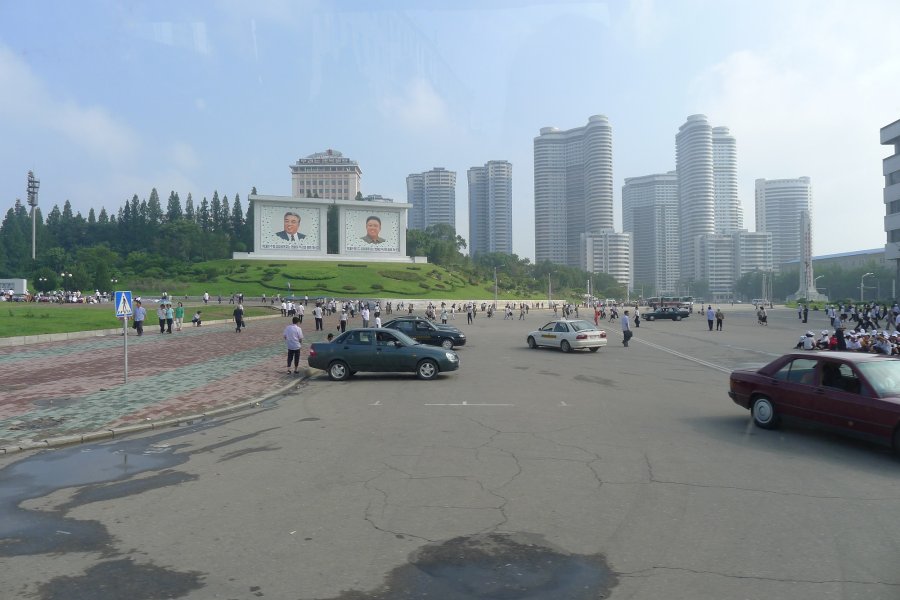
The Kim leaders overseeing the capital city of Pyongyang. Credit: Alythea Ho
And so, on that cold autumn morning, I found myself nursing a not-so-fresh cup of coffee aboard a tour bus cruising through Pyongyang. The coffee was terrible—bland and insipid, not unlike the scenery outside the bus. Depressingly grey buildings flew past us in a dull flurry, punctuated by lurid 15-ft tall murals reminiscent of 1980s communist China.
Cyclists threaded the streets, stopping only to allow buses to plough sleepily through like packed mules. Occasionally, a car could be seen; a striking anomaly in a city where the majority still proceeded everywhere by foot.
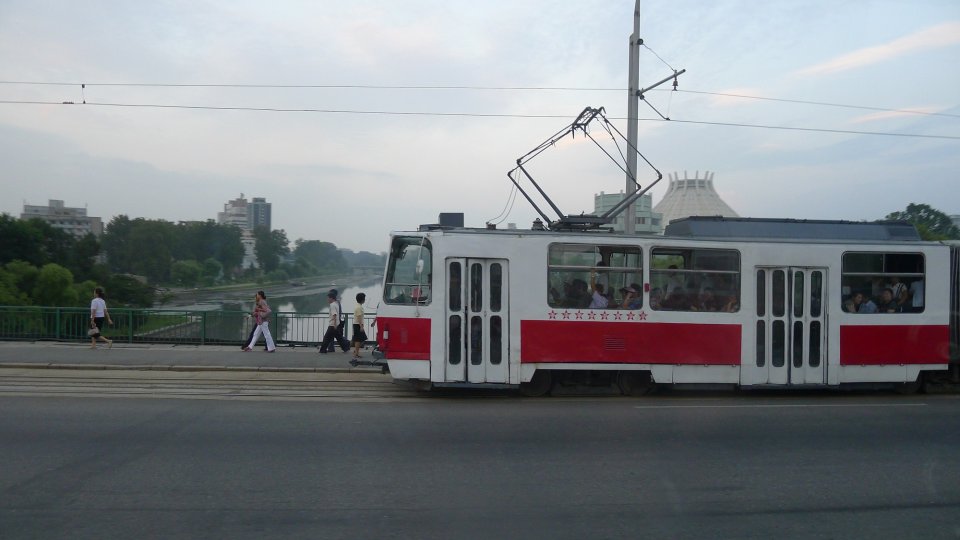
The viable alternative to walking. Credit: Alythea Ho
But I could scarcely complain. Earlier, the hotel bartender took an instant coffee sachet and poured half of it, with great flourish, into a cup for me. As I turned to leave, she squirreled the remaining powder into her pocket, as if it was the most natural thing to do in a country where 70% of the population relies on food aid to survive.
Half-listening to our guide, I took another slow sip. Guilt is an excellent flavour additive. “We Koreans were the first to invent the printing press. Gutenberg? That’s a lie from the Western imperialists.”
The guide droned on: “The Grand People’s Study House has millions of books in the library. We also have state-of-the-art technology for people who wish to study.”
“That is the Arch of Reunification. It represents how our Eternal President Kim Il Sung always longs* for the South to return to us as one Korea.”
“We’re now in Panmunjeon, next to the border with the South. Over there you’ll find lots of nuclear weapons, missiles, and dangerous bombs. Here we’re very peace-loving. We only grow rice.”
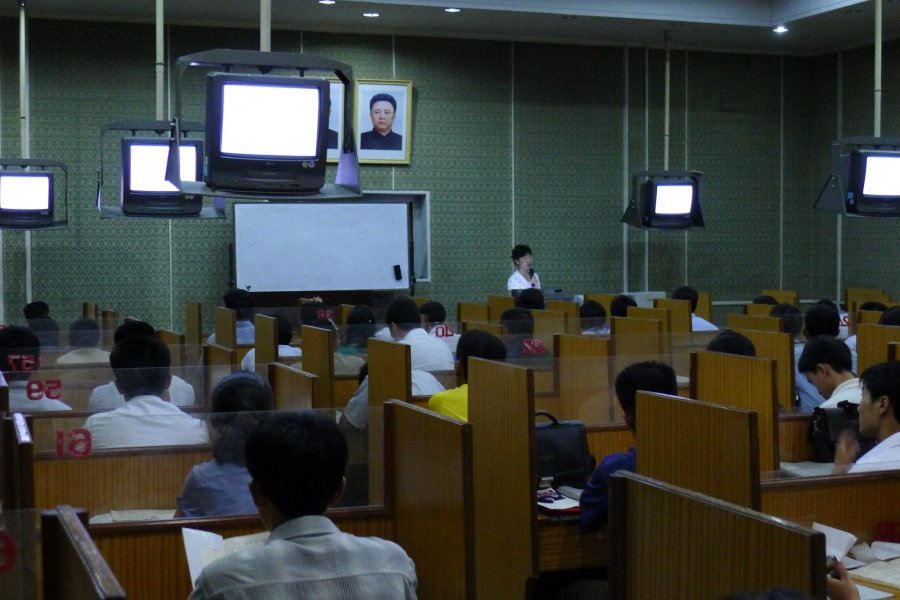
The so-called state-of-the-art technology in the Grand People’s Study House. Credit: Alythea Ho
Keeping up with our guide’s rhetoric was very much like falling down a rabbit hole. Only there’s no wonderland at the end to speak of, and if you’re not careful, all that’s waiting is a mire of half-truths and deception.
As we hurried down the hallways of yet another ‘patriotic’ building, a young girl in our group smiled brightly: “Actually, North Korea isn’t that bad after all. I think the Western media is over exaggerating.”
I stared at her. Has she not noticed how activity strangely revolved around us whenever we visit a building? Has she not seen how dark or devoid of people and furnishings the other hallways were, those hallways where we were discreetly steered away from seeing? Has the North Korean propaganda machine begun to work its sorcery on our group?
Several middle-aged aunties nodded their heads. “Yah hor, it’s not that bad,” they said.
“Good, quite good. Like China.”
Fabrications of men
Great mountains encircled the lagoon Sa-mil, like an enormous earthen ring around azure. Even from this distance, I could see their crowns tipped with pine trees that spiked proudly toward clear skies. Several paces away, down a flight of steps hewn from rock, the rest of our tour group had begun their descent towards a long suspension bridge in a torrent of camera clicks.
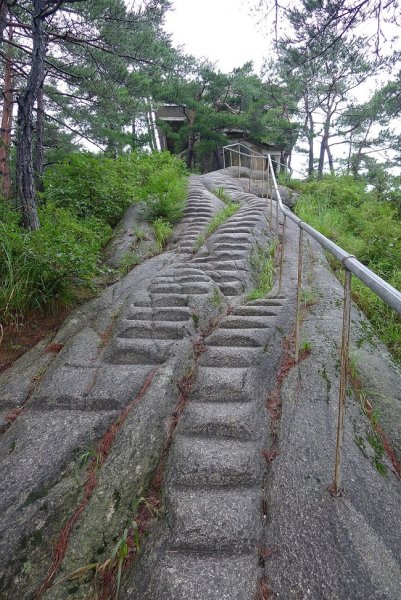
The impossibly steep rocky steps to Samil. Credit: Alythea Ho
The bridge was Sa-mil’s only man-made highlight; it spanned the lagoon’s sandy inlet like an angry red slash against nature.
After five days of nationalistic nonsense, I was starting to feel the same way too—a seething angst against unwelcomed intrusiveness into what’s naturally right and good. Maybe it’s the fakery of it all; the deliberate lie and act that mocked the tragic reality of what ordinary North Koreans were going through. Maybe it’s anger directed at the ruling family, or frustration at how easily my tour companions were swayed to their agenda.
Maybe it’s all of the above.
“Why aren’t you joining your friends? You don’t like this place?”
A soft skittering of pebbles, and our guide Kim glided to my side. Kim is only 23, but looked like she waltzed straight out of a 1980s etiquette textbook. A black skirt billowed around her knees, and the long-sleeved chiffon blouse she wore looked as if it’d swallow what little curves she had on her tiny frame.
“Our Dear Leader has great foresight and heart for his people,” said Kim, her voice prim yet persuading. “You should try. You can see Sa-mil better from there.”
I watch our group totter across the bridge to an isolated cliff. It led to a rocky dead-end.
“Nah. Not my kind of thing,” I insisted gently.
Kim smiled politely. Like a good hostess, she kept a polite but available distance. Close enough to converse, yet safe enough to avoid any unnecessary contact with a foreigner like me.
“Hey Kim,” I asked suddenly. “Why did you become a guide?”
Her eyes darted furtively around. She needn’t worry; the only locals we encountered in this lagoon had long gone past in a severe-looking government car, black as death.
“Actually, I wanted to be a doctor. My mother’s a doctor. My sister’s a dentist.”
“So, why didn’t you?” I persisted.
She gestured to her leg. “Broken. I missed the doctor exams.”
“So? You could just retake it the following year?”
Her pretty features tightened into a forced smile. “In North Korea, it is not good to retake exams.”
She whispered the last words, but in my ears they came out as a roar; a roar of truth above every word of propaganda she had spoken about her country and the Kim family.
A swish of pink chiffon, and our guide turned to the bridge that led to nowhere, as if she had said nothing of importance. I could hear her calling to the others to say it’s time to go back. Yes, it was definitely time to return home.
*In North Korea, they refer to their deceased leaders in the present tense, because they are supposed to be always guiding them from above
Have a travel story to share too? Write in to [email protected]


